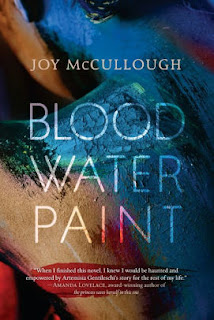Julia can’t hear but she lives to express herself through
street art, throwing up her spray-painted creations wherever she finds an
inviting wall. When she gets caught and
expelled from her school for the deaf, she is placed in a mainstream school in
the suburbs. Stuck in such an alien
surrounding, she figures that her graffiti will be pretty much on its own. And so she is surprised when her tags are
attacked by another street artist. While
tagging her tags is an act of aggression, even Julia has to admit that the
mysterious artist’s contributions actually improve her work, which just makes
her madder.
I have a problem with getting past the fact that Julia’s
actually an unrepentant vandal and, while plenty of adults try to instill this message, she and
the author never grow savvy to it. Instead,
I’m supposed to see this property damage as something good.
But that said, I liked the idea of Julia’s character. Having her be deaf is an interesting
choice. It’s certainly integral to the
story, but never really becomes the story.
In much the same way, the fact that she's a girl is notable but never made a point in the story.
This is a story about an artist trying to express herself and come to
terms with others (which is a struggle for her -- being deaf and also a non-traditional artist). The book is illustrated with some great artwork created by the author that goes a long way towards capturing the ethos of Julia's art.












